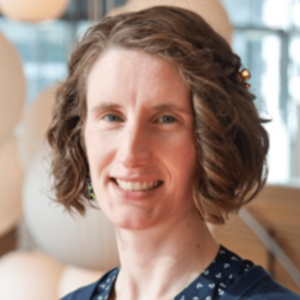 Authors:
Authors:
- Preetma Kooner, she/her, Assistant Professor without Tenure, Anesthesiology and Pain Medicine, University of Washington, Seattle campus
- Kate Gentry, Associate Professor without Tenure, Anesthesiology and Pain Medicine, University of Washington, Seattle campus
Project Description
Physician residents experience microaggressions throughout their training. This workshop is designed to educate them on the history of disparity within medicine and present them with the tools to counter the micro- and macroaggressions they see in the clinical environment.
Project Question
We are trying to incorporate healthcare inequity, structural racism and microaggression education into clinical medicine. The aim of this project is not to only give resident physicians the knowledge of broader concepts, but also real tools to combat the daily consequences of microaggressions.
The biggest challenge is developing curriculum that is action-based. Therefore we have incorporated small group work with example-based learning. Our project question is how to best provide the tools and practice to resident physicians to recognize and deal with microaggressions.
Context
The workshop is part of a broader curriculum focused on health care equity. It is a required part of the anesthesia residency training. Residency is a 4-year program and resident physicians begin this curriculum in the second year of training. There are two 2-hour sessions per year throughout the rest of their training. The microaggression workshop consists of a background lecture and facilitator-guided small group work. The course is done in person with a virtual option available.
Methods
To analyze the impact of the workshop, residents are given pre-workshop surveys. After the session, they are asked to score how much they have learned and how useful they found the tools we presented.
Impact/Assessment
Compared to pre-survey data, residents reported increases in knowledge, a shift in attitudes, and increases in skills related to managing microaggressions.
Application
Microaggressions are reported across medical specialties in all levels of training. The tools and scenarios we developed are directly applicable to trainees in other medical fields. While different scenarios would need to be designed with nonmedical disciplines in mind, the basic approach is applicable. The tools for recognizing and addressing microaggressions could serve as a basis for workshops across disciplines.
This workshop was developed as a pilot by Dr. Kate Gentry for resident curriculum. We have subsequently developed lectures and discussion sessions on this foundation. The entire curriculum could be used to provide a cross-specialty education for medical trainees.
Additional Insights
Other parts of the curriculum include: “Difficult Conversations: the role of Empathy” and “Cultural Humility in Medicine”. We are currently obtaining pre and post session surveys to measure the impact of the newer sessions. Through formalized trainee feedback, we hope to offer a guide for other training programs. Also, we hope to survey the residents at various points in their training, going forward to understand how long lasting the microaggression training is and how to further improve it.